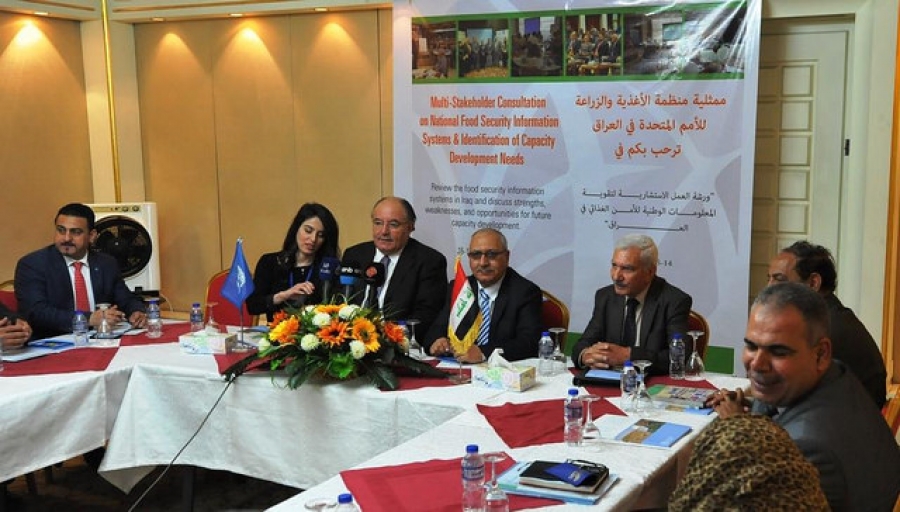ILO workshop with tripartite partners sheds light on maternity protection in Iraq
A one day workshop funded by the European Union focusing on maternity protection was organised by the International Labour Organization (ILO) in Baghdad on Tuesday (November 2).
The workshop, which brought together representatives of the Ministry of Labour and Social Affairs, the women’s department in the Ministry of Industry and Minerals, employers’ and workers’ representatives, is part of efforts to support progress towards Iraq’s ratification of ILO Maternity Protection Convention, 2000 (No. 183).
The convention seeks to ensure that the right to work and rights at work of all employed women are adequately protected during maternity and beyond. It sets standards for health protection, maternity leave, benefits, nursing, employment protection and non-discrimination.
ILO specialists on gender, social security and International Labour Standards held sessions, which focused on the key provisions of ILO Convention No.183; gaps in the legal and regulatory framework for maternity protection; the role of social security in guaranteeing maternity protection; and the broader implications of maternity protection for gender equality and women’s participation in the labour market. The event also shed light on Social Security (Minimum Standards) Convention, 1952 (No. 102) .
With support from the European Union, the ILO, together with the United Nations Children’s Fund (UNICEF), and United Nations World Food Programme (WFP), are implementing a joint programme with the Government of Iraq to reform social protection in the country.
The ILO, through the joint programme, is providing technical support in the development of the draft retirement and social security law. The draft law is intended to replace the current Social Security Law No. 39 of 1971. If passed, the draft law will bring in several changes that would make the Iraqi social security legislation closer to meeting the minimum requirements of International Labour Standards.
“The ongoing efforts for the ratification of Convention No.183 and Convention No.102 will enhance and increase women’s access to decent work in Iraq,” said Maha Kattaa, ILO Country Coordinator in Iraq.
(Source: UN)
The post ILO workshop on Maternity Protection in Iraq first appeared on Iraq Business News.

